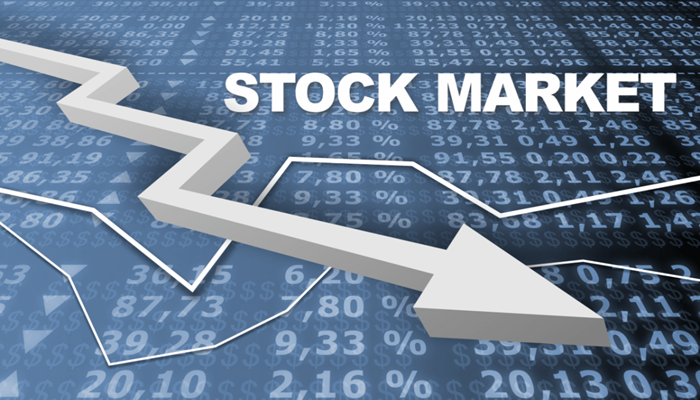
Some financial experts on Monday attributed the incessant lull on the Nigerian Stock Exchange (NSE) to various economic dislocations in the country.
The financial experts, who spoke to the News Agency of Nigeria (NAN) in separate interviews in Lagos, noted that uncertainties in the economy were discouraging investors from investing in the market.
Ndubisi Nwokoma, a Professor of Economics, University of Lagos, said that economic dislocations such as high debt service, budget deficit and insecurity were affecting investors’ confidence in the equities market.
“The fundamentals of the economy is not right, there are so many issues about uncertainty in the economy. People don’t know where the direction of the economy is and the debt burden is very high.
“Government is finding it difficult to run the budget even this year’s budget is neither here nor there.
“The level of debt service is very high, the revenue is not realistic and its not something you can bank on.
“The revenue from oil and even the revenue from VAT that has not been approved, the whole revenue for the budget is not reliable.
`There is no way an investor will come around and see such dislocations in the system and be willing to keep his money when the vehicle is heading in a direction you don’t like.
“So, development in the capital market is such a reflection of the uncertainty in the entire system.
“The market keeps going down because there is no hope that things will turnaround.
“The environment is not conducive for somebody to invest and there is no local or fresh money coming to the market,’’ Nwokoma said.
On the way forward, he said that government needed to fine-tune its economic policies to attract capital, thereby encourage investment.
“Government policies need to be aware that we cannot run our economy with our own money, we need foreign money to come and that will help to moderate the exchange rate,’’ Nwokoma stated.
Nwokoma called for introduction of incentives that would boost foreign investors’ participation in the stock market and economy at large.
According to him, the policies that will attract capital should be pursued as well as the issue of insecurity.
He noted that government needed to concentrate on policies that would boost capital infrastructure by increasing capital expenditure in the budget and not recurrent expenditure
“Government profile for expenditure is already in area of recurrent, there is no hope for capital expenditure which will ginger the growth of the economy when you can cut down your capital expenditure and you are growing your recurrent,” Nwokoma said.
He explained that there would be no infrastructure development with high recurrent expenditure
Nwokoma called for further reduction of interest rate by the Central Bank of Nigeria (CBN) to attract more capital into the country, noting that returns on investment in other jurisdictions were now better than Nigeria.
“CBN can still do a little bit more by interest rate dropping, insecurity issue has to be addressed and government needs to get its economic policies right because capital is looking for better returns all over the world.
“If they come to Nigeria and it’s not good, they will move to Ghana if its better they stay there,” Nwokoma added
Also speaking, Malam Garba Kurfi, the Managing Director, APT Securities and Funds Ltd., said that the persistent negative trend on the NSE was the reflection of the general economic malaise.
Kurfi stated that the delay in the release of capital budget for 2019 contributed to the development in the market.
He said that the apex bank retention of interest rate at 13.5 per cent which led to movement of funds to the fixed income market.
“I believe the low price of the stocks is likely to attract foreign investors since most of the stocks trade below fair value.
“The early implementation of the budget will raise confidence of the market and the market will likely rebound,” Kurfi said.
He urged the market regulators to embark on road shows both locallyand internationally to lure investors back to the market.
“The Federal Government should think of incentives either by tax or otherwise to attract more companies into the market.’’
Mr Sola Oni, Chief Executive Officer, Sofunix Investment and Communications, attributed the market lull to macroeconomic swings, low purchasing power of investors and crowding out of investment in equities by fixed income securities.
Oni, however, expressed optimism that things would turnaround with the announcement of the budget, constitution of Economic Advisory Council (EAC) and the expectation that the council would engage market operators on specific areas to revive the economy.
“I have always canvassed that investors should take advantage of the underpriced blue chips and boost their’’ he said. (NAN)






